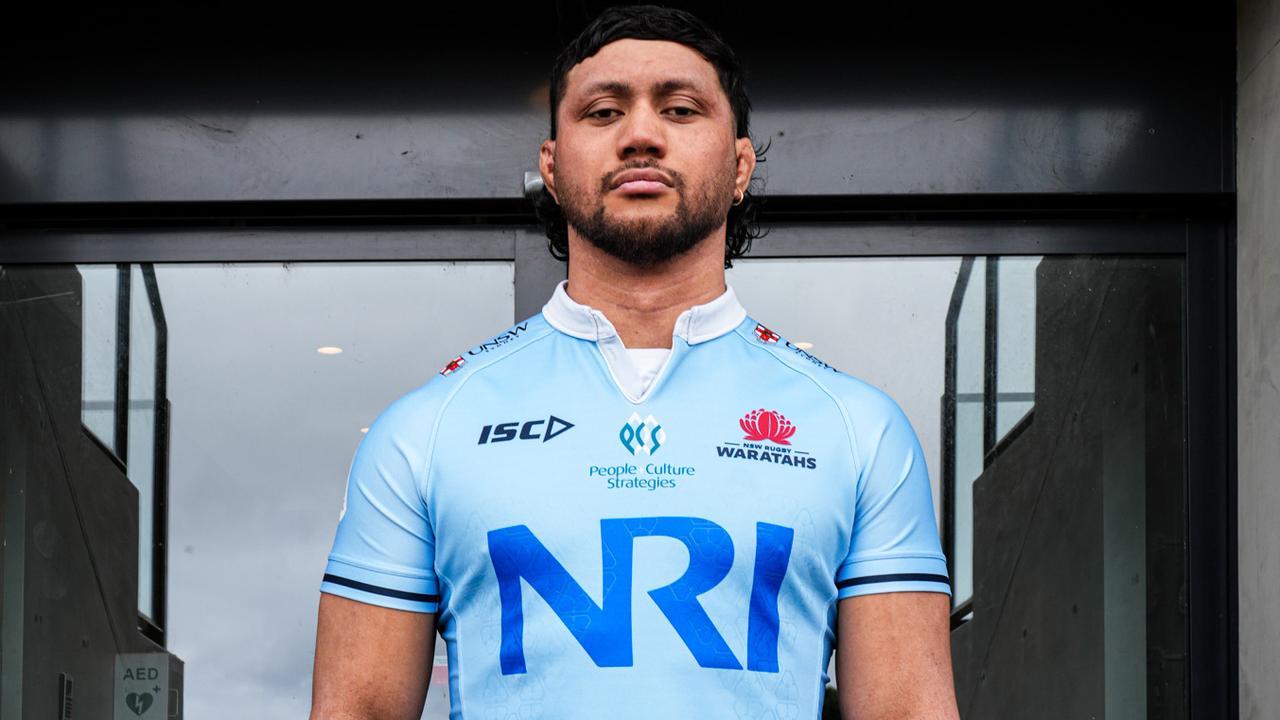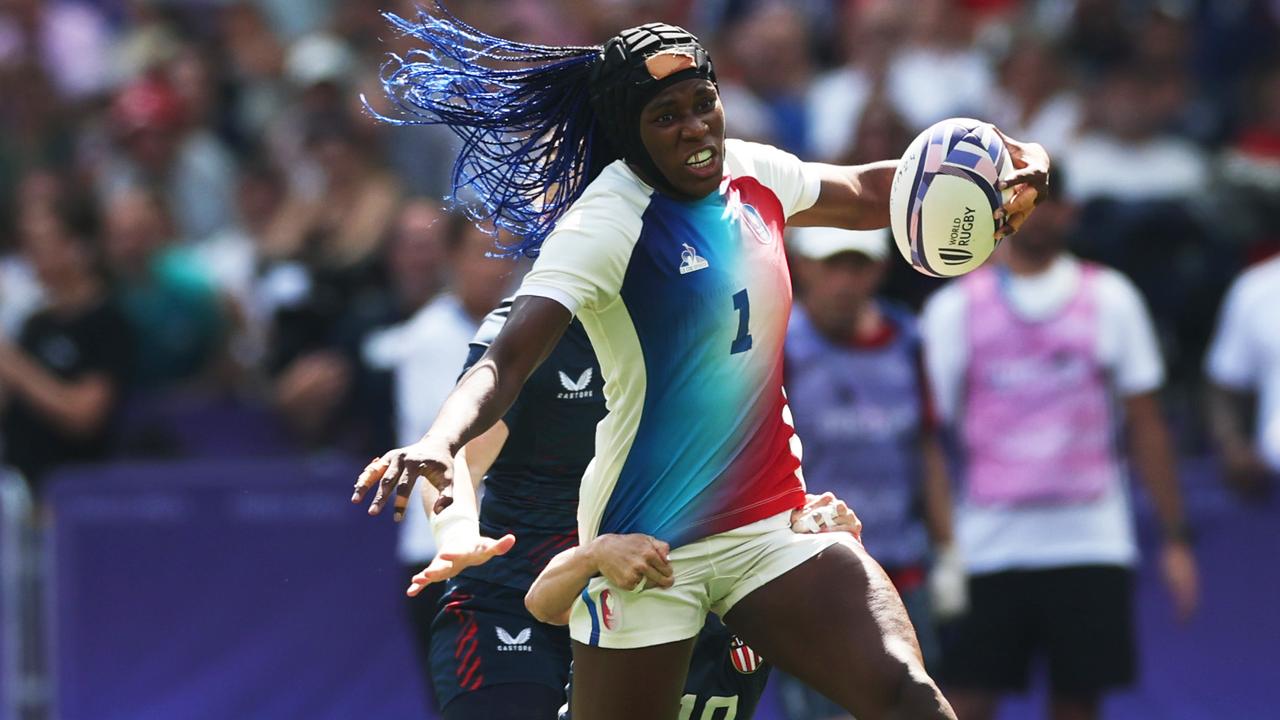‘I’ve learnt to be more tolerant’: Jones reveals how he was forced to change coaching approach
In part two of CODE Sports’ coaching series, former Wallabies coach Eddie Jones opens up to LISA ALEXANDER about the personal toll of coaching, player and media relationships and more.
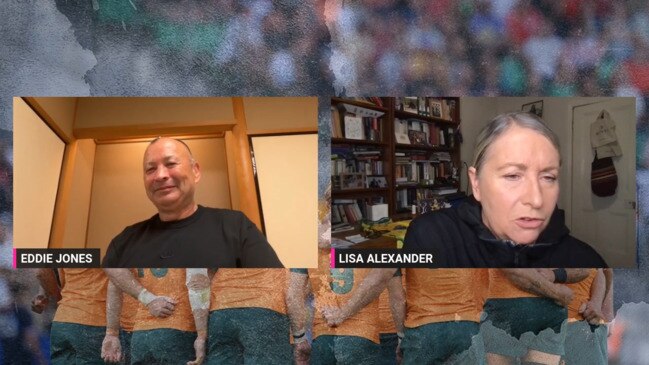
Former Wallabies coach Eddie Jones has opened up about the guilt he feels towards his family and daughter after more than three decades moving around the world for his job, how his relationship with players has changed over the years, his fallout with former assistants and his verbal combat with media.
In the second part of a revealing one-hour interview with former Diamonds coach Lisa Alexander for a CODE Sports coaching video series, Jones talks about some of the more personal impacts of coaching and how he has navigated the minefield of personal relationships when he has often been portrayed as the villain – too intense and difficult.
Click here to watch the full interview on Youtube
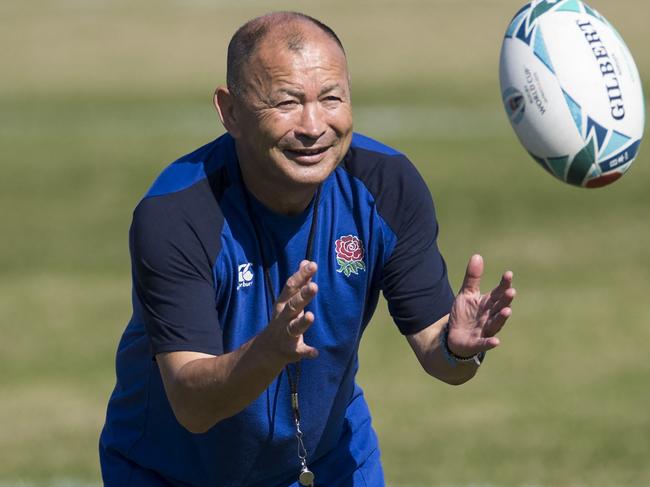
PRICKLY RELATIONSHIPS
Jones had the best winning record of any England rugby coach but his eight-year stint ended with anonymous complaints from assistant coaches about his treatment of them.
He also had an Australian assistant coach quit on the eve of last year’s World Cup.
Jones makes no apologies for the environment he created within his high-performance team.
He said some people were just not cut out for elite sport and he believed he had mellowed over the years.
“The environment you create for your staff is so important,” Jones said.
“Our high-performance environment can sometimes be a little bit uncomfortable and doesn’t suit some staff.
“I want a staff that is absolutely driven. I know when younger I wasn’t as tolerant of people that didn’t have the same desire as me.
“In the last period of time I’ve learnt to be more tolerant.
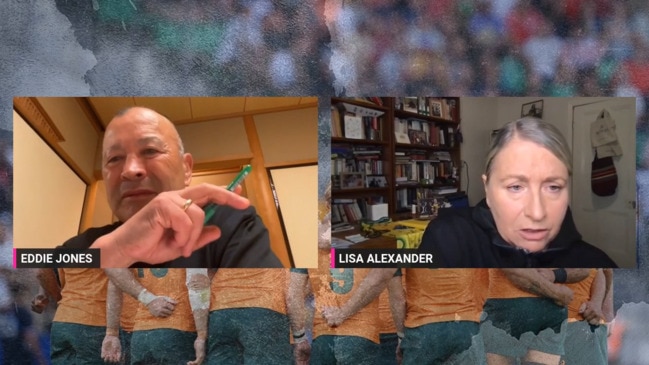
“Now I’m less hands-on and try to create more of an ecosystem for them.”
As for the critics who talk anonymously behind his back after they leave his teams?
“I get a little tinge disappointed but I don’t really worry about it,” Jones said.
“Over the period of 20 years I can recall a bad relationship with one assistant coach at the Wallabies, definitely one or two with England, and apart from that the relationships have been pretty good.
“I have certainly had some bad relationships, I don’t discount that, but I think to portray that as my total career like that is silly.
“The one thing I reckon I’ve learnt – sometimes you learn the lesson but you don’t keep the knowledge for too long – is the media will always get you.
“You can have your little run with them but they will always get you.”
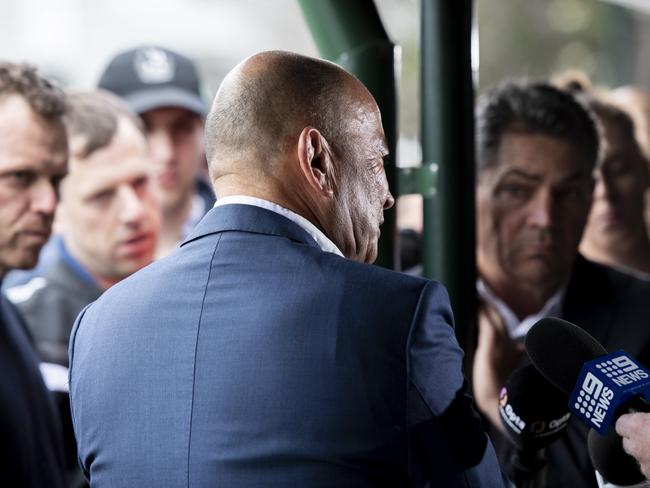
MEDIA COMBAT
Jones is notorious in media circles for the mind games he loves to play before big games.
Like Wayne Bennett in rugby league, he commands centre stage whenever he talks and often uses the spotlight to deflect, attack or strategise – sometimes all in the same sound byte.
“At times I’ve been reasonably strategic, at times I’ve been overly combative, which I probably was with Australia,” he said.
“But how would I talk about the media? Oh, it’s been fun, fun most of the time.
“I do like going to the media conference, particularly in England where you have a huge audience and they have a premeditated headline they want and trying to get a different headline in. I think that is a lot of fun.
“I can remember in the 2019 World Cup when we played New Zealand, a good mate of mine David Pembroke was the media adviser and he would have me really well prepared.
“I made a statement that ‘all you journalists are just fans with keyboards’ and that set off a thing.
“When you do that it’s a bit of fun and creates a bit of drama to the game.
“We are not in the entertainment business but I think we have to be entertaining sometimes.”
PLAYER RELATIONSHIPS
In a coaching career that has spanned three decades, Jones has adapted his style over time. Initially, with his schoolteacher background, he estimated the job was 80 per cent instructing and 20 per cent observing.
Now it’s completely flipped. Part of that is trusting his assistant coaches to do more of the hands-on work, the other part is knowing what strings to pull with what players.
“We are servants to the players,” he said. “Whatever the players need, our job is to give to them.
“A servant to the players is not giving the players what they want, it’s what they need.
“Sometimes that servant philosophy can seem harsher than the words itself.
“But you’ve always got to work out what the players need to be better and what the team needs to be better.”
As the age gap between coach and player has grown, Jones has had to change the way he approaches his relationship with players.
“Most players just want to know that the coach can make them better,” he said.
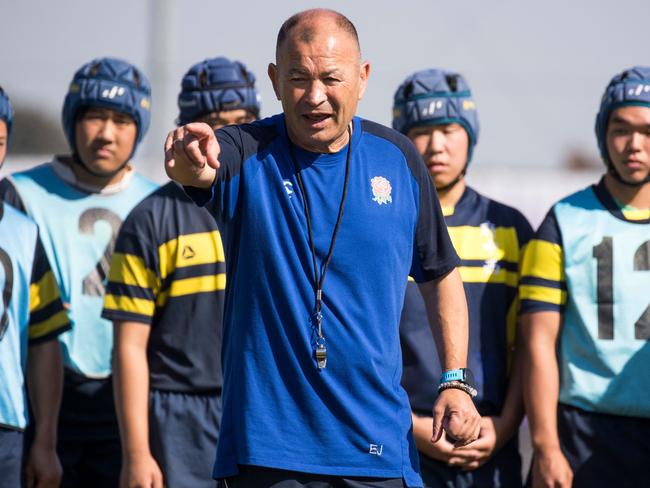
“Some players only want to know how you can make them better, other players want more like a father-son relationship.
“It’s your ability to work out with each player what sort of relationship they need.
“One of the things I’ve found interesting is as I’ve got older and the gap between myself and players has got bigger, I think I’ve become a bit better at reading that.
“Maybe it’s because I brought up a daughter, not very well, but you make mistakes and you learn how to look after young people better.
“I’ve learnt you have to be culturally discerning with each of the groups of players.
“Every group of players you have the normal curve. The top 10 per cent, you just try to stay out of their way. You let them do what they’re good at.
“The middle 80 per cent is the one you are really putting your work into, how you can move them up to the top 10 per cent. I think that is the job of the coach.
“I love coaching and love the sport I don’t consider it ever to be work.
“How lucky am I in that I am still running around in a pair of shorts and a whistle around my neck.
“The joy of seeing young players develop never diminishes.”
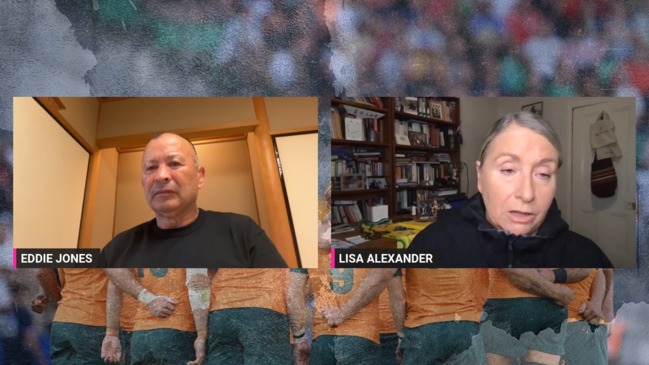
FAMILY STRAIN
Jones has travelled the world to coach and has had jobs in Japan, Australia, England and South Africa.
His longest stint was as England coach, which lasted from 2015 to 2022.
The transient nature of life as an international rugby coach has taken a toll on his family that he has only just fully realised and addressed.
“We’ve only got one daughter (Chelsea) and she travelled around a fair bit,” Jones said.
“She maybe went to three or four high schools, so that was difficult for her, particularly as she got older.
“(Being) in your teens changing schools became quite difficult and I never felt I gave her the support I should have because I was coaching, so I feel a bit guilty about that.
“She actually went back to Australia and worked for the Wallabies for three years as a logistics manager.
“Then she had had enough, or I think she was sacked like me. I’m not sure, it might run in the family. I was only sacked once.
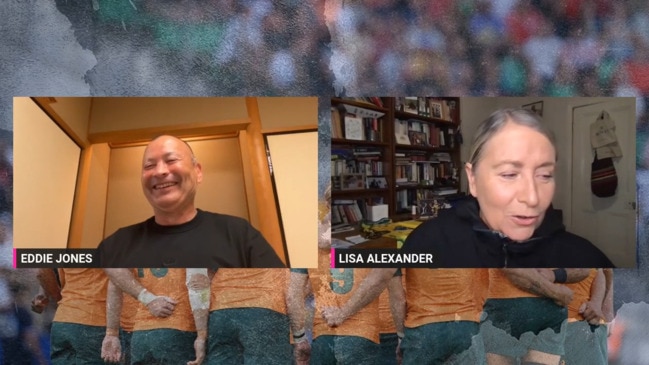
“She has gone to Japan and is working in recruitment and is absolutely loving it, but I think it’s given her that adaptability of being able to find a way.
“My wife (Hiroko) is just used to (this life). One of the best things we did was when our daughter left we got a dog and that became our daughter.
“Even now that dog has passed away and we have a new dog. When I go home now I put the phone away and just spend time.
“I think that is a really key thing. When you’re at home, really try to prioritise what you’re doing at home and not mix work and the family together.
“It’s taken me a long time to realise that.”
Hiroko has made her feelings known about what’s next for the family.
“My wife has never given me much advice on coaching,’’ Jones said.
“She said, ‘after you do four years here (in Japan), maybe you need to settle down a little bit’.”
THE JONES LEGACY
When Jones finally does retire, it will be interesting to see how he is remembered.
It’s rare that coaches leave any job on happy terms. They are usually fired or retired.
A coaching leaving on the high of a prestigious tournament victory is a fairytale few achieve.
For Jones, his career will include Tri Nations victories, Six Nations triumphs, a Super rugby title with the Brumbies and two World Cup finals for England (2019) and Australia (2003) but no William Webb Ellis Cup.
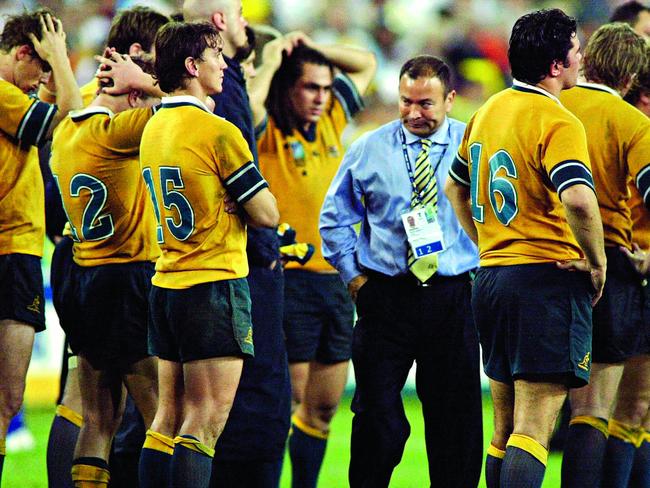
In Australia, will he be remembered for the 2003 World Cup final and as the last coach to win the Bledisloe Cup for the Wallabies (in 2002)?
Or will last year’s World Cup elimination in the group stage be a stain on his resume that won’t be forgotten?
“I don’t like to be remembered in any way,” Jones said.
“But I think what I’ve been able to show is it doesn’t matter where you come from or what your background is, you can make it if you’re prepared to work hard enough.
“I hope people will remember some of the good rugby (my) teams have played. I think that is important.
“We’ve won things and we’ve lost things. Hopefully they think I’ve made the game a little bit better.”



